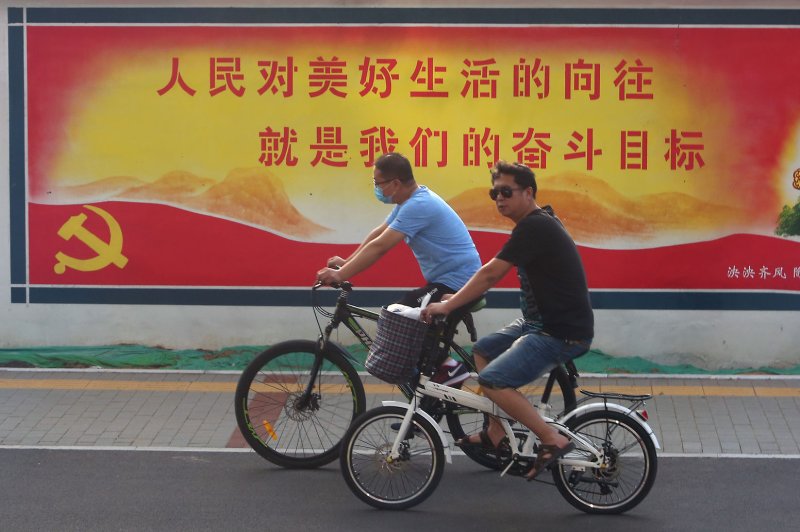Chinese access to South Korea's largest online portal has been suspended, according to a South Korean press report. File Photo by Stephen Shaver/UPI |
License Photo
Oct. 19 (UPI) -- China's crackdown on free speech is targeting South Korean web portals as video games continue to be banned, according to a South Korean press report.
Operators of online search engines based in China told News 1 on Friday access to parts of Naver, South Korea's largest search engine, had been blocked in China.
Naver's section for personal blogs and online "cafés," where users can post messages on an electronic board for each other, have not been accessible since Tuesday, according to the report.
"At present, accessing Naver from China's Internet is impossible," News 1's source said. "There were similar incidents in the past, but this is the first time we have not been connected for such an extensive period."
China blocks about 10,000 domain names, including Google, Youtube, Instagram and Twitter -- although access to the sites are still possible using a virtual private network, or VPN.
News 1's sources say online censorship is worsening following a Chinese government decision to shift the monitoring of Internet content from the State Administration of Radio, Film and Television to the propaganda department of the Communist Party.
"Chinese IT firms used to access Naver to study trends in South Korean entertainment and games," a South Korean source in China said, "But this appears to be blocked. It is discouraging the transfer of South Korean content to the Chinese market. The objective appears to be to operate content, manageable by the Communist Party, to prevent anti-Xi Jinping sentiment."
South Korean video games were being unofficially banned in the Chinese market following Seoul's decision to deploy THAAD, the U.S. missile defense system, on the peninsula in 2016.
Chinese sanctions targeting South Korea appear to be easing, however.
Money Today reported Friday South Korean tour operators expect large groups of Chinese tourists to return to Seoul for shopping excursions.
One group of 820 Chinese tourists are to be taken to duty-free stores, but the itinerary does not include the duty-free store belonging to South Korean conglomerate Lotte, according to the report.
Lotte may have been the target of unofficial sanctions when Chinese shoppers boycotted Korean goods following the controversy over THAAD. The firm offered its golf course as a site to deploy missile defense.















